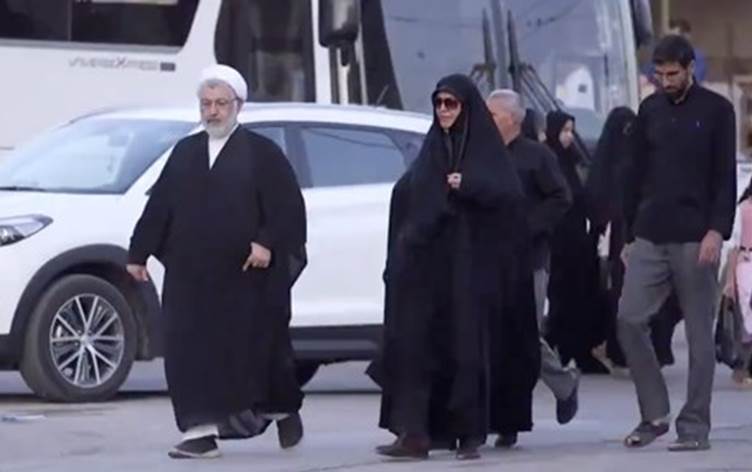NAJAF, Iraq — Despite the removal of visa fees between both neighboring countries, the number of Iranian religious tourists to Iraq's southern holy cities has plummeted, concerning local vendors.
“Some 70-80 percent of tourists came from the neighboring Iran. However, due to the financial conditions in Iran and sanctions, the arrival of Iranian tourists to Najaf and Karbala has dramatically dropped, Khuzair Jabouri, the head of Najaf Provincial Council told Rudaw in late May.
Najaf, Karbala and Kufa are three holy cities in Iraq whose shrines and holy sites are visited by millions of Shiite every year.
Tourism is Iraq’s second largest source of income after oil exports.
Iran’s economy has been harmed by US sanctions on oil, energy, and trade under the administration of Donald Trump.
Iran has increased efforts to keep its economic relations with Iraq. Several Iranian officials have visited Iraq recently, including President Hassan Rouhani.
“We agreed on developing and facilitating relations on the popular level. To that end, Iran announces it will not charge visa fees, and later the Iraqi side will announce that it will not charge visa fee,” Rouhani told reporters on March 11 during his three-day visit.
Both governments have removed visa fees and Iran no longer stamps passports when entering from Iran, instead they stamp a slip of paper.
However, efforts by Baghdad and Tehran have not yet helped the businesspeople in Iraq's holy cities who fear bankruptcy.
Abdul-Sattar Hatem from Najaf is one example. He told Rudaw that he saw Iranian Foreign Minister Mohammad Javad Zarif two months ago. The FM allegedly urged him not to allow US-Iran issues harm Iraq.
“The situation has dramatically affected the market. The big bazaars used to be crowded and busy. Each of these stores used to sell [goods] worth more than $2,000-3,000 but now it is at maximum $50,” he claimed, adding that the situation is out of control and Iraqis are paying the price of the US-Iran conflict.
Many Iranians are no longer able to afford a trip to one of the holy cities.
Iraq's hoteliers are also concerned that they may go out of business soon if the situation does not improve.
“Business is gone. Most of hotels in Najaf, typically those in countryside, are closed due to a lack of customers and they have suffered losses,” Karim Kharsan, a hotelier in Najaf, told Rudaw.
There are more than a thousand hotels in both Najaf and Karbala. They have halved prices due to the guest shortage, but to no avail.
According to Iraqi statistics, 4 million tourists visited Najaf and Karbala through Najaf International Airport in 2018, but that has dropped by 60 percent in the first five months of 2019.
Reporting by Hunar Ahmed



Comments
Rudaw moderates all comments submitted on our website. We welcome comments which are relevant to the article and encourage further discussion about the issues that matter to you. We also welcome constructive criticism about Rudaw.
To be approved for publication, however, your comments must meet our community guidelines.
We will not tolerate the following: profanity, threats, personal attacks, vulgarity, abuse (such as sexism, racism, homophobia or xenophobia), or commercial or personal promotion.
Comments that do not meet our guidelines will be rejected. Comments are not edited – they are either approved or rejected.
Post a comment